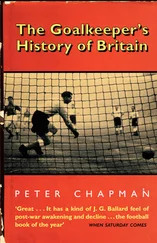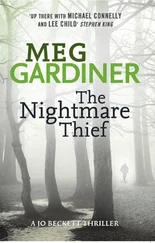But even in those places such as the mining valleys where there was a long tradition of allotment-holding, the Depression, while making such activity all the more necessary, meant it was harder to do. An unemployed man — or one on short-time hours — might well not be able to afford the necessary seeds, tools or fertiliser. The Quaker Society of Friends reported that an unemployed miner in South Wales ‘who had been accustomed to grow his own potatoes … had become too poor to buy the seed, that for a time he received seed from his companions, and when that was no longer available he went to the rubbish heaps for peelings and took out such “eyes” as he could find in order to plant his allotment’.
The Society of Friends started a scheme ‘to supply (at first free of charge) small seeds, seed potatoes, tools, fertilizer and lime’. It was so successful that the government took it up, and in the winter of 1930, 64,000 families were helped in this way. But it was one of the casualties of the 1931 economic crisis, so the Friends stepped in again, persuading the government to give pound-for-pound matching grants to some 62,000 allotment-holders; this rose to over 100,000 grants in subsequent years. In Sheffield over 117,500 unemployed men were provided with ‘the requisites for a 300 square yard plot’ in 1934, but as the Sheffield Allotments for Unemployed Scheme pointed out, ‘This is a scheme to help men who help themselves — how substantial is that self help is shown by the amount the men themselves have contributed towards the cost of supplies — no less than £24,700 collected week by week’. Moreover, such activity was giving a welcome boost to the local steel industry, since in 1933 ‘over 56,000 spades, forks, etc were supplied nationally, and these were all made in Sheffield’.
Another necessity of life was fuel. It cost at least two shillings a week to heat a modest house, and anyone who could went collecting wood or ‘scratting’ (scavenging) for coal. Herbert Allen, whose father was a frequently unemployed farm labourer (and as an agricultural worker was not covered by the unemployment insurance scheme) in Leicestershire, always went ‘wooding’ on a Saturday. ‘We never bought any coal … My step-brother and myself used to have to go wooding round the spinneys and the hedges and all that. We’d have a pram and a home made truck and we’d … walk four or five miles to the woods and pile the old pram right up, put bits of wood round the side so you got a real good height. If ever we was hanging round the house it was always: “If you’ve got nothing to do you can go and do some wooding.”’
Will Paynter, a trade union activist and checkweighman at Cymmer colliery in the Rhondda who was often on short time or out of work during the thirties, spent one day every week with his father and brother on the colliery slag heaps searching for coal. They would only manage to fill one bag each: ‘To get three bags could involve turning over twenty to thirty tons of slag which was hard work in any language.’ They then had to carry the heavy bags on their shoulders for a mile or more over the uneven and often slippery sheep-tracks on the mountainside.
‘Scratting’ around for small pieces of coal was particularly humiliating for men who had spent their working lives hewing great lumps underground. ‘If there’s one thing that makes us bitter here in the Rhondda, it’s the question of coal,’ said John Evans.
I have to pay half a crown a week for coal — though there’s plenty lying around. When we’re in work in the mines we get supplies at a small fixed rate. Why can’t we when we are unemployed? We who have worked all our lives in the mines feel we have a kind of a right to it. In these parts there are places where the coal seam comes to the surface on all sides of the hills — they are called outcrops. We could get coal there. But the companies won’t allow it — they even use explosives to make it more difficult for us to get at the coal, though it isn’t profitable enough for them to use it. Every colliery has its slag tip — where they throw out all the stuff they can’t get rid of, and among it are bits of coal. We are sometimes allowed to pick this over at certain times after the contractors have been over it. At these times the place crawls with men trying to find bits of coal — like ants on an ant heap. It’s a hell of a job, especially on a cold day, and of course one can never find enough. That’s why so many go out at night and try to steal it. But they have policemen, and if one’s caught it means fifteen shillings [fine, or worse].
In Ashton-under-Lyne there was a neat scam: coal was brought to the mills in barges, and when it was taken in lorries from the bin, it was shovelled down a chute into the barge below. ‘The chaps that was working on the barges would only be on two or three days a week, and they’d be related to the blokes that wasn’t working — brothers and cousins … well accidentally on purpose [the men shovelling the coal would] throw about six shovelfuls into the canal every time they got the chance. When the barge moved on, there’d probably be three or four hundredweight of coal,’ so the men waiting and watching on the bridge ‘used to get a bucket full of holes on a clothes line, throw it across the canal and scoop it up. Fill half hundredweight bags. Then they had a pram or pram wheels with boxes on and they used to go round the streets selling it. People used to grumble, “This bloody coal, it’s all wet through.” But it was only two bob for half a bag,’ recalled Jack Shaw.
‘Some of them [the unemployed miners] have become coal pirates,’ one of their number in South Wales told Fenner Brockway, an ILP MP until he lost his seat in the 1931 election, and a fierce critic of the National Government and the Labour Party’s unemployment policies. ‘They get caught sometimes and do a turn in prison. But what does it matter? Prison is no hardship these days; food guaranteed and no worry. There are men who raid the coal-trucks … Every night a train climbs [the mountain] side. The men jump on it when it’s going slow, scramble on top of a truck, throw coal off, and then leap down the other side and gather the coal in sacks to sell. A man was killed doing that the other night: slipped and got cut up by the train … it shows to what lengths they’re being driven.’
Poverty drove many very close to the wrong side of the law — and then tipped them over. As some scavenged for coal to sell, others poached with the same intention. Charles Graves noted that ‘there used to be hundreds of pheasants on Lord Savile’s property, Wellow Wood. Two years ago [in 1930] they bagged 900. Last year only 35 and a similar number of rabbits.’ An East Midlands miner on short time recalled that ‘The best time we ’ad was when we went out pegging one Friday night … there were six of us … we ran the nets out there three times and we got twenty rabbits apiece … Some going that were, three nets for 120 rabbits.’
Dick Beavis, a Durham miner, ‘spent a lot of time poaching in the 1930s. I was the “knitter”. I used to knit all the nets for the lads. Put them over holes … and put the ferret in. I found that more interesting than pit heaps. And that’s how I learned my political thoughts. Well whose was the land? You go on all these neglected heaps. I used to think what harm are we doing? We were caught by the police and when we received our summons it was said we were catching “conies”. We didn’t know what that was. (It wasn’t until later in my life that I discovered that “conies” is the old English word for rabbits. Rabbits are classified as vermin — and so you could say you were catching vermin — but “conies” is not.) So the magistrate looked at me and he said, “Where did you get them?” And I said “I found them, Sir.” Well, he said he’d never heard such a bloody tale and fined us all.’
Читать дальше












